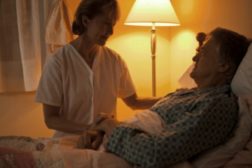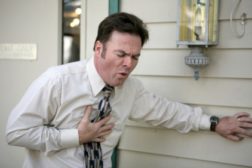Workplace Health
Study: Shift schedules not as unhealthy as they used to be
Hormone changes can be minimized
September 30, 2011
Cardiac rehab boosts survival rate after heart attack
Study: Cardiac victims recover faster after exercise, live longer
September 27, 2011
Fans at Michigan-Notre Dame game save life of heart attack victim
AED, CPR saves die-hard football fan from dying at game
September 26, 2011
Small particles, big confusion
Study: Many companies unclear on how to limit nano exposure
September 23, 2011
Is a happy persona a healthy person?
Some evidence points to positive effects of positive emotions
September 21, 2011
Emergency treatment for heart attack improving
But study says delays still occur
September 20, 2011
Scuba diving helps vets with spinal cord injury
Johns Hopkins researchers find ‘dramatic’ results in small preliminary study
September 19, 2011
Iraq/Afghanistan war vets suffering from new respiratory condition?
Researchers propose name for diagnosis
September 16, 2011
Become a Leader in Safety Culture
Build your knowledge with ISHN, covering key safety, health and industrial hygiene news, products, and trends.
JOIN TODAYCopyright ©2025. All Rights Reserved BNP Media.
Design, CMS, Hosting & Web Development :: ePublishing







